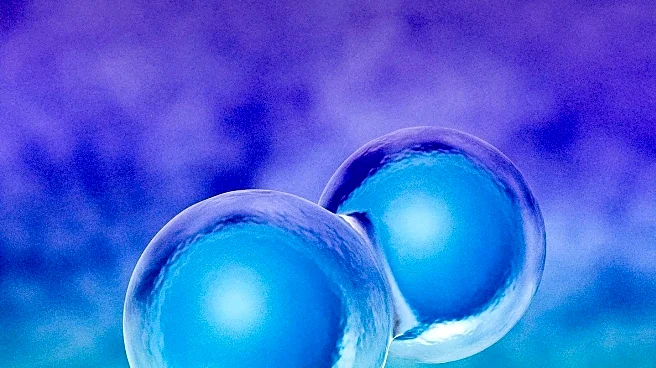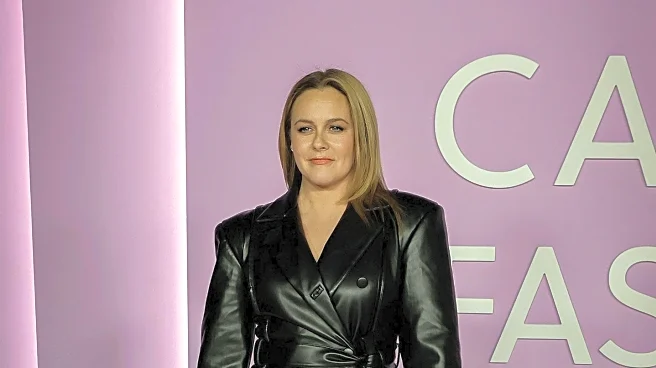What's Happening?
Bridget Bahl, a content creator with a significant online following, recently shared her unexpected journey from undergoing in vitro fertilization (IVF) to receiving a breast cancer diagnosis. Bahl, who
was newly married and eager to start a family, was on her sixth round of IVF when she discovered a lump in her breast. Initially attributing the lump to changes from IVF medication, she sought medical advice during a routine fertility check-up. Subsequent tests, including a mammogram, ultrasound, and biopsy, revealed that she had invasive ductal carcinoma, a type of breast cancer. This diagnosis was particularly surprising given her lack of family history of breast cancer and no genetic predisposition. Bahl's case highlights a growing trend of younger women being diagnosed with breast cancer, despite the median age of diagnosis being 62, according to the American Cancer Society.
Why It's Important?
Bahl's experience underscores the complex interplay between fertility treatments and cancer detection. While there is no established correlation between IVF and increased cancer risk, her story raises awareness about the importance of monitoring health changes during fertility treatments. The rise in breast cancer diagnoses among women under 50 suggests a need for increased vigilance and possibly earlier screening protocols for younger women. This development could influence public health policies and encourage further research into the potential impacts of fertility treatments on cancer risk. Additionally, Bahl's public sharing of her journey may inspire others to be proactive about their health, potentially leading to earlier detection and better outcomes.
What's Next?
As Bahl navigates her cancer treatment, her story may prompt discussions within the medical community about the need for comprehensive health assessments for women undergoing IVF. It could also lead to increased advocacy for breast cancer awareness and early detection strategies. Medical professionals and researchers might explore more robust guidelines for monitoring women undergoing fertility treatments, ensuring that any potential health issues are identified and addressed promptly. Bahl's openness about her experience may also encourage other women to share their stories, contributing to a broader understanding of the intersection between fertility treatments and cancer.









